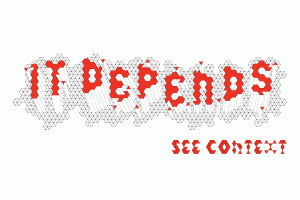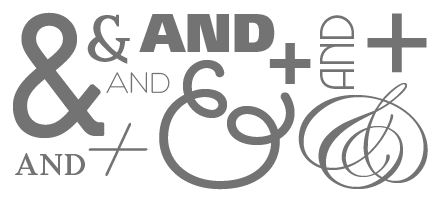 In my more impetus youth, I hated it when someone answered my question with “it depends.” I interpreted that response as meaning either he didn’t know or she couldn’t make a decision.
In my more impetus youth, I hated it when someone answered my question with “it depends.” I interpreted that response as meaning either he didn’t know or she couldn’t make a decision.
These days, I chuckle when I find myself replying “it depends.” I’ve learned (the hard way!) the importance of considering variables and context.
If the questioner hasn’t walked away in silent or not-so-silent disgust after they receive my “it depends” answer, I’ll ask if they’re willing to explore why I gave that answer. When they say “yes,” we end up in a rich, “teachable moment” discussion in which their thinking moves from black and white to shades of gray.
If you’re on the receiving end of an “it depends” answer:
- Channel your impatience or disdain into inquiry. As Covey reminds us, seek first to understand. Ask clarifying questions to understand why you received that response. Own delving in to determine the reasons behind the answer. Sometimes “it depends” does come from a vapid place; more frequently though, it comes from a place full of new thoughts.
- Be open to exploring alternatives and contingencies. Possibilities that may have never occurred to you can be top of mind for someone else…and could be a critical, overlooked factor which positively impacts your decision-making.
- Challenge yourself to understand why you want a black and white or speedy answer. Are you seeking a quick fix? Are you reluctant to take a deeper look? And if so, why? Are you succumbing to quantity over quality?
If you’re on the giving end of an “it depends” response:
- Share your insights about your ambiguous answer. People process information in very individual ways, so providing an explanation of how you reached your conclusions helps round out other’s thinking.
- Engage the questioner in dialogue. Exchange thoughts to expand one another’s point of view.
- If that was your response because you truly don’t know the answer, own up to your lack of knowledge. There’s no shame in not knowing. There’s lots of shame in covering up, denying or fibbing.
“It is better to debate a question without settling it than to settle a question without debating it.” ~Joseph Joubert
Image credit: College of Fine Arts
